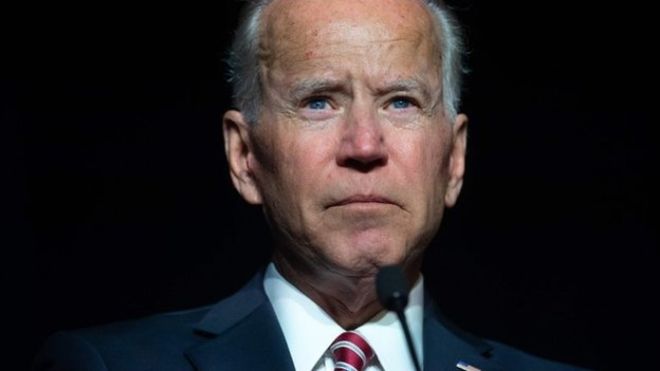President Joe Biden’s relief bill aimed at helping Americans deal with the impact of the coronavirus pandemic has cleared a major hurdle.
The $1.9tn (£1.4tn) plan was approved in the Senate on Saturday despite every Republican senator voting against.
The House of Representatives – controlled by Mr Biden’s Democrats – is expected to approve it next Tuesday.
Mr Biden described the Senate vote as “one more giant step forward” in delivering the promise to help people.
America’s worst public health crisis in a century has left nearly 523,000 people dead and 29 million infected, with a current unemployment rate of 6.2%.
The relief package – the third in the US since the start of the pandemic – envisages one-off payments worth $1,400 to be sent to most Americans. Mr Biden said such payments could start being distributed later this month.
Republicans say the plan is too costly. Some Democrats have also voiced criticism of certain provisions and the party’s leadership was forced to make a number of compromises, notably the lowering of federal unemployment benefit from $400 to $300 a week. The benefit will be extended until 6 September under the plan.
“It obviously wasn’t easy. It wasn’t always pretty. But it was so desperately needed, urgently needed,” President Biden said.
He added that he hoped for a quick passage of the bill in the House so that he could sign it into law.
What’s in the package?
The so-called American Rescue Plan allocates $350bn to state and local governments, and some $130bn to schools.
It would also provide $49bn for expanded Covid-19 testing and research, as well as $14bn for vaccine distribution.
The $1,400 stimulus cheques will be quickly phased out for those with higher incomes – at $75,000 for a single person and for couples making more than $150,000.
The extension of jobless benefits until September, meanwhile, would mark a key reprieve for millions of long-term unemployed Americans whose eligibility for benefits is currently due to expire in mid-March.
The bill also includes grants for small businesses as well as more targeted funds: $25bn for restaurants and bars; $15bn for airlines and another $8bn for airports; $30bn for transit; $1.5bn for Amtrak rail and $3bn for aerospace manufacturing.
Source: BBC


Comments are closed.